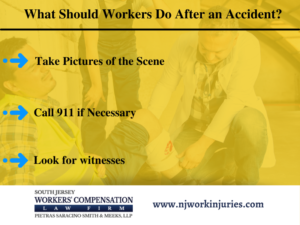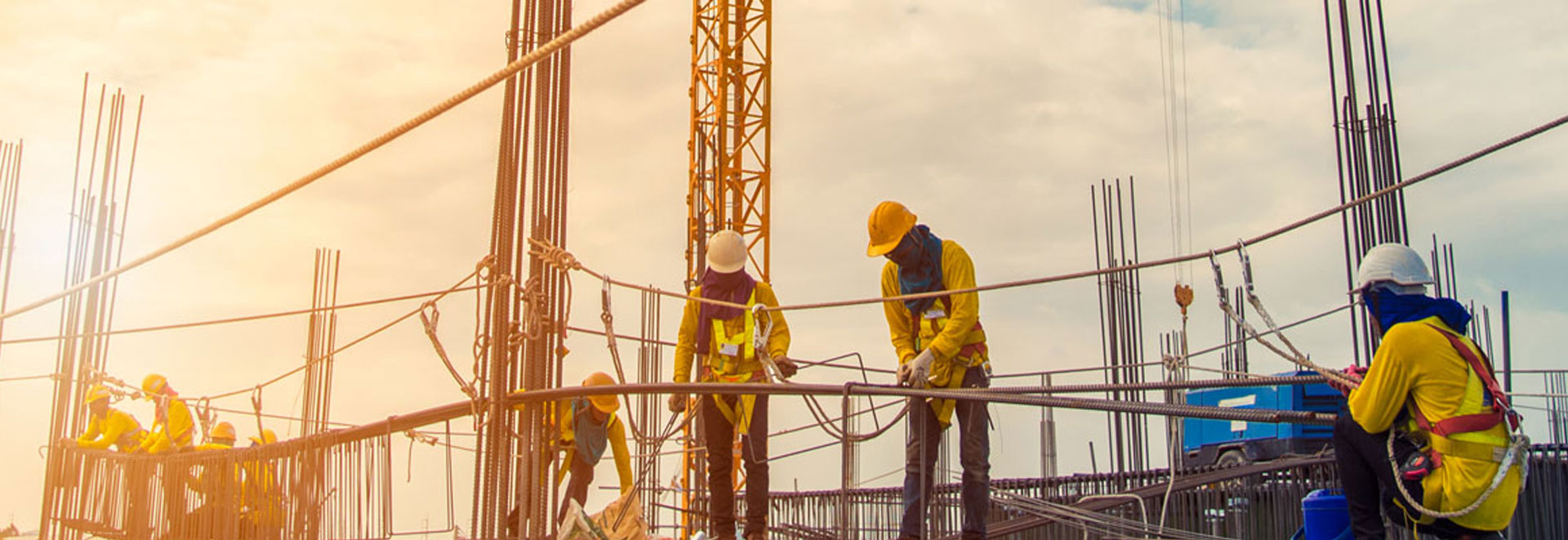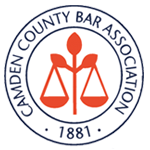Cherry Hill Workers’ Compensation Lawyers
Workers’ compensation is a no-fault insurance system designed to compensate New Jersey workers who are injured on the job. Qualified employees may receive workers’ compensation benefits for the medical bills and lost wages associated with their injury or illness, regardless of who was at-fault for the accident. Experienced Cherry Hill workers’ compensation lawyers can assist in ensuring workers receive maximum compensation. Nearly all New Jersey employees are covered, except for independent contractors, executives, and seasonal workers. However, longshoremen, maritime workers, railroad workers, and other federal employees are covered under federal workers’ compensation laws that supersede state workers’ compensation laws.
All New Jersey employers are required to carry workers’ compensation insurance or face serious penalties. Employers who knowingly misrepresent an employee as an independent contractor may face criminal charges in addition to hefty fines. There is legal recourse for employees who are forced to hide injuries, not allowed to report injuries, or who are misclassified by their employers.
Our lawyers will do what they can to review the steps to take after a workplace accident and advise clients on how to proceed. We ensure that our clients can recover as much compensation as possible for their injuries, and we will guide clients through the workers’ compensation claims process, which can be complex.
Common Professions Where Injuries Occur
Injured employees who have been hurt on the job should be covered by workers’ compensation insurance, and they might work in a range of industries. We can help any of the following workers with their injury claims:
Commercial truck drivers: Truck drivers can be injured on the job if they are involved in accidents or hurt when they are loading and unloading vehicles. Truck drivers might also be injured if their vehicle has not been loaded properly by someone else and it tips over or crashes.
Construction workers: Workers on construction sites can be hurt by the tools that they are using. Workers might fall from heights or slip on wet surfaces. These employees could also be electrocuted when there is standing water in the area or a damaged power source. Electrocutions can also occur when power cables on tools are frayed.
Health care workers: Health care employees can slip and fall on slick floors, contract diseases, or be assaulted by a patient. Some employees even receive injuries when they are attempting to restrain patients for care.
Office workers: Those working in offices can develop a repetitive motion injury, such as Carpal Tunnel Syndrome, or they might slip and fall when walking around the building. Office employees could become injured while walking to different departments, or they might be involved in a car accident while driving to a new location for work. Because these workers are driving as part of their job duties, they are still eligible for workers’ compensation benefits.
Public safety workers: These workers are at risk every day when dealing with violent people or dangerous situations. Public safety workers deserve to be compensated via insurance in accordance with state law. This is concerning for people who work in public safety because they are at a higher risk than most other workers. At the same time, these workers are often not off duty. This means that the classification of their injuries and work duties could be challenging. We will ensure that public safety workers can file claims and receive the care that they need.
Restaurant and kitchen workers: These workers should be covered by workers’ compensation because they constantly endure slippery floors and handle sharp cutlery, hot stoves, and other items that can cause injuries.
Retail workers: Retail employees can also be injured on the job because they are walking around the store, climbing shelves, lifting heavy boxes, and using tools. Retail employees could be electrocuted when tools are not powered properly, or the wires are frayed.
No matter the job, all workers need to be covered by workers’ compensation insurance if they are eligible. We will ensure that our clients are protected and understand how the process works.
What Types of Benefits are Available in New Jersey?
When employees are covered by workers’ compensation, they can receive three different types of coverage. There are death benefits available for workers who are killed on the job or die as a result of their injuries. Death benefits allow the family to pay for final expenses, but the injury or death needs to be reported properly.
There are instances in which our firm may sue for wrongful death if the employee was killed because due to the negligence of an entity other than the employer. It is important to remember that employers are shielded from liability because they have workers’ compensation insurance. However, third parties, such as other employees, part or tool manufacturers, or municipalities, could be held liable for the death. If a car accident occurred during work hours, the guilty driver could be held liable for the death of the employee.
When a worker is injured but will make a full recovery, they can receive temporary total disability benefits, which will pay for their injuries and recovery on a temporary basis. This type of disability can continue for some time until the worker is ready to work a full schedule. The worker will receive a portion of their income when they are on disability, as well as undergo the physical therapy and rehabilitation necessary to help them get back to work.
Permanent total disability benefits are distributed when the employee cannot go back to work per normal. Workers should be provided with coverage that allows them to go on with their lives if they cannot work normally. Permanent total disability also pays the worker a percentage of their income. Our lawyers will review each case and ensure that our clients receive the benefits that they deserve. Insurance companies often create complications, and we will fight for compensation to ensure that our clients recover and move on.
What are the Most Common Work Injuries?
Work injuries are common and occur for many reasons. Because injuries are so diverse, workers often do not know how to deal with these injuries. They might believe they are not eligible for coverage, or they might think that the injury is minor. The following work injuries occur easily and should not be taken lightly. Someone who is hurt should report their injury immediately, as well as any illnesses that develop after the worker has been on the job for many years.
Burn injuries: Burns can range from minor to severe. Workers may think they can patch up a minor burn with a bandage and go back to work. Employees should report the injury so that it does not become infected. Going to the doctor after a burn will also create a paper trail that can show the employee has been treated since the injury occurred.
Carpal Tunnel Syndrome and Repetitive Motion Injuries: Carpal Tunnel Syndrome can occur when someone has been typing or working with their hands for an extended period. Employees might be on the job for many years before they notice pain in their hands or wrists. At the same time, workers may believe they cannot report these injuries because they are an unavoidable part of the job. We suggest that workers receive treatment, even though the injury might seem minor. A track record of care is helpful, and the care received should be paid through workers’ compensation benefits. If an employer tells an employee to use their private insurance, that is outside the bounds of how workers’ compensation is supposed to be used.
Eye injuries: Eye injuries can occur when workers are on construction sites, using power tools, or near flying debris. Using goggles can help prevent these injuries; however, injured workers should receive medical care as soon as possible to prevent blindness or other visual impairments.
Hearing loss: Hearing loss can occur on any worksite that is very loud. Employees should wear protective gear or ear plugs as much as possible. Hearing loss can build up over time, and some workers might not notice there is a problem until much later.
Heavy lifting injuries: Heavy lifting injuries occur because workers are not wearing back braces or lifting as a team. Working with others and using forklifts may be helpful to preventing accidents.
Mental stress at work: Mental stress at work can take a toll on someone who has been put under too much pressure. Additionally, someone injured on the job might feel the mental pressure that comes along with being hurt, losing money, or possibly not having the ability to work at all.
Occupational disease and illness: There are diseases or illnesses, such as respiratory disease, that could occur when someone is exposed to toxic chemicals or substances. These diseases might have been worsened by what the job demanded of the employee. There are special trust funds set aside for asbestos exposure at large companies that have gone bankrupt, and we can file claims against those trust funds on behalf of our clients. We can also file claims for illnesses that arise after many years on the job.
Heart attacks: Heart attacks could occur on the job. We can help file a claim for workers’ compensation when the heart attack has been attributed to the job or the lifestyle that the job requires.
Workplace brain injuries: Brain injuries can occur when workers are struck by an object, or they might be injured in a car accident while driving for work.
Construction accidents: Construction accidents include slip and fall incidents, accidents involving power tools, electrocutions, and head injuries when falling debris strikes the worker.
Electric shock: Electric shocks occur when a power source is shorted out or wires are frayed on power tools. Standing water might leave a worker more vulnerable to electric shock.
Falls at work: Falls at work occur when workers slip on wet surfaces or fall from heights.
Heavy machinery accidents: Heavy machinery accidents often involve cranes, forklifts, backhoes, and other machinery that could injure a worker or fall over and cause massive damage to the site.
Workplace motor vehicle accidents: Motor vehicle accidents can occur when an employee drives as part of their job. These accidents occur when the driver is hurt by a reckless driver, or the worker might have been hurt while driving a vehicle on an active construction site.
How Do Injured Workers File a Claim in New Jersey?
Employees who are hurt in a workplace accident should seek medical care immediately. What may initially seem like a minor injury can turn into a major health issue if left untreated. Any employee who has been injured on the job or has been diagnosed with a work-related illness should notify their employer as soon as possible. Though written notice is not required, it is recommended that the worker document as much of the incident as possible, such as where and how the accident happened, who was there, and what injuries were sustained. Keeping up with all medical and rehabilitation treatments is crucial. Lastly, an injured worker should seek legal advice from an experienced workers’ compensation lawyer to ensure their rights are fully protected and that all eligible benefits are obtained. The deadline for filing a workers’ compensation claim in New Jersey is two years from the date the injury occurred.
Certain injuries are not the result of a single accident or event, but rather develop over time. The same is true for certain occupational illnesses. This can make it difficult to determine the exact date to file a claim. For this and other reasons, workers are advised to report any injuries and illnesses as soon as they are discovered. This will help to ensure the details surrounding the injury are properly documented so that workers can begin receiving benefits as early as possible.

What Should Workers Do After an Accident?
There are a few things workers can do after an accident to ensure that they can file a claim and receive the care they need. We recommend that workers do the following:
- Take pictures of the scene: If the employee has been incapacitated, they should have someone else take pictures or videos of the accident site. It might even be helpful for employees to have an agreement with their colleagues that they will help in such a situation.
- Call 911 if necessary: The injury can be reported after the worker goes to the hospital. When it is necessary to call 911, there will be witnesses, and the injury will be easy to report.
- Have witnesses talk to us: Our workers’ compensation lawyers should speak to any witnesses who are willing to talk about what happened. We need their testimony if the insurance company denies the claim.
There are also a few things workers should not do when involved in a work accident. We recommend that workers refrain from doing the following:
- File a complaint without evidence: Because workers’ compensation is a no-fault system, there is no reason to file a complaint about the employer. We may have evidence that another employee or a parts/tool manufacturer was negligent, but our clients should not try to handle these complaints alone.
- Complain to the employer or make threats: It would be unwise to make unfounded threats because those threats will come out in court or during a settlement negotiation.
- Complain to the insurance company: The insurance company might record phone calls. This may cause problems for the client if there are rude comments, profanity, or threats.
- Speak to lawyers or representatives who make offers or try to settle the case: The employee should not sign documents or speak to anyone without a lawyer present. We can take those calls and talk to any stakeholders in the case.
How are Cases Approved or Denied?
After an employer has received notice of an injury, he or she must notify the company’s workers’ compensation insurance carrier so that a First Report of Injury can be filed with the state. After conducting an investigation, the insurer will either accept or deny the claim. If the claim is accepted, the worker will receive compensation for all injury-related medical expenses, a portion of his or her lost wages, and in some cases, payment for permanent disability.
Claims can be denied for a variety of reasons. Claims that are filed with inadequate or inaccurate information will surely be denied. Another common cause for a denial is when the employer disputes the employee’s assertion that the injury or illness is truly work-related. Employees who have been initially denied benefits are advised to seek the counsel of a qualified workers’ compensation lawyer for help in filing an appeal.
How Can Cherry Hill Workers’ Compensation Lawyers Help with the Appeals Process?
Workers who have been denied workers’ compensation benefits have two options for filing an appeal. The first is to file an informal claim through the New Jersey Division of Workers’ Compensation. A hearing will be scheduled within a few weeks, in which case a judge will review accounts by both sides, as well as any documentation, such as medical records and witnesses’ reports. The judge will then issue a recommendation, which is not binding. If the parties cannot agree to a settlement, the worker can then proceed with a formal claim.
Formal hearings can be lengthy and complex. Both sides must present evidence and testify under oath before a judge, whose final decision is binding. Workers who wish to appeal the decision must bring their case to the New Jersey Appellate Division of the Superior Court.
Our Cherry Hill Workers’ Compensation Lawyers Recover Benefits for Injured Workers
You can reach our Cherry Hill workers’ compensation attorneys today at 856-219-4665 or contact us online for a free consultation. Located in Cherry Hill, New Jersey, we serve injured workers throughout South Jersey, including Camden, Cinnaminson, Delran, Maple Shade, and Pennsauken.












